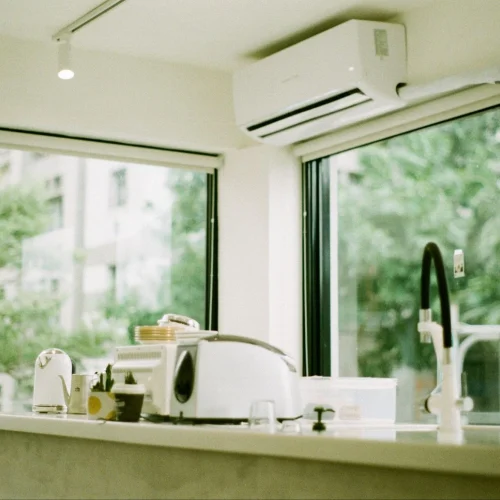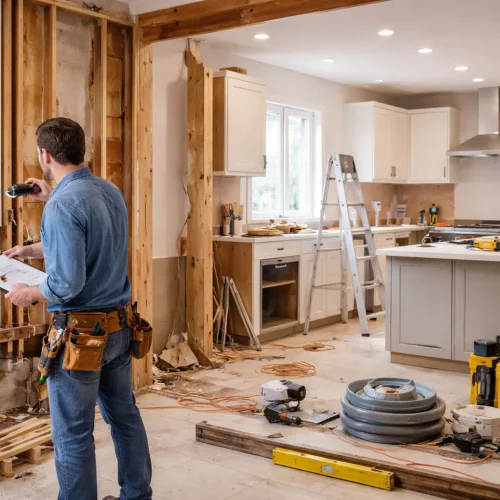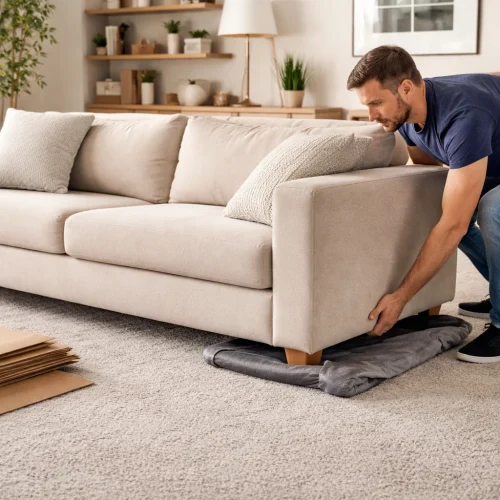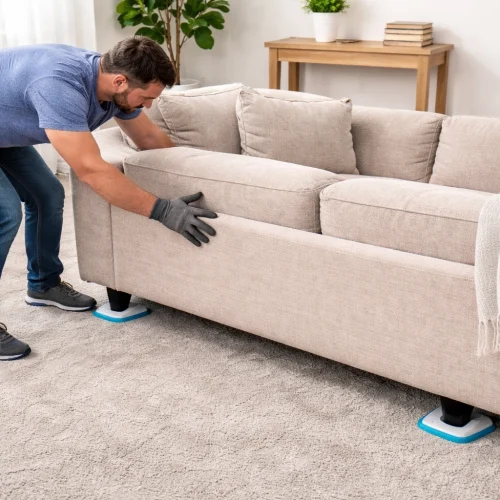
Being proactive can help reduce costly surprises caused by neglect or weather damage. In a place like Galveston, TX, where salt in the air and high humidity can take a toll on buildings, keeping everything in good shape isn’t just a good idea. It’s necessary. Regular checkups, cleanups, and tune-ups protect your investment and keep your living environment comfortable year-round. Many local services play a vital role in preventing sudden breakdowns, helping residents extend the life of their living spaces. Knowing when and where to get timely assistance can make a real difference in keeping things efficient and saving money over time.
Here’s how you can keep your home in top shape:
Why Proactive Maintenance Matters
Catching small problems early can stop them from turning into expensive ones. A dripping faucet or flickering light might not seem urgent, but ignoring it could lead to major issues later. Consistent inspections and quick fixes save money by avoiding big replacements or emergency work. Keeping an eye on equipment, surfaces, and wiring helps things run more efficiently, too. Staying on top of these tasks reduces stress, prevents unexpected disruptions, and preserves the value of your living environment. The goal is to act before things break down completely, which always ends up being more affordable and convenient in the long run.
Reliable Local Help for Repairs and Inspections
Residents in Galveston, TX, often face issues caused by salt exposure, heat, and seasonal storms. That’s where trusted local services come in. A reputable garage door repair company in Galveston TX can offer regular inspections, part replacements, and emergency support that keep things working smoothly. Their skilled team can provide same-day service, new door installations, and safety checks to prevent costly breakdowns. These services help reduce wear and tear and improve reliability over time. Regular attention to moving parts, springs, and openers can also extend durability and keep daily routines uninterrupted, which is important for every household in a coastal region.
Seasonal Checks to Prevent Costly Problems
Each season brings unique challenges, and small actions can help avoid big expenses. Before summer, clean air filters, test cooling units, and check seals around doors. As cooler months approach, clear leaves from gutters, inspect heaters, and cover outdoor faucets. In this region, salt and moisture require extra care, so washing exposed surfaces and checking for corrosion helps prevent damage. Keeping a short checklist for each season keeps you organized and avoids expensive surprises. Spending a little time on prevention saves both effort and money over the year while keeping your surroundings safe and comfortable through changing weather.
Keep Plumbing and Drainage in Shape
Water-related damage is one of the most common and costly problems in any household. Regularly checking faucets, toilets, and showerheads can prevent water loss and mildew. The region’s humidity makes it even more important to look for damp spots or slow leaks under sinks. Simple actions like running vinegar through garbage disposals or cleaning filters help reduce buildup. Make sure the water heater is flushed yearly to keep it efficient. Taking time to handle these small maintenance tasks protects floors and walls from damage and keeps everything running as it should, preventing expensive restoration work later.
Roof and Gutter Maintenance Tips
Keeping the roof and gutters in good shape prevents a range of problems. After a storm, it’s important to check for missing shingles, loose flashing, or debris buildup. Leaves and dirt clog gutters easily, which can lead to water overflow. Cleaning them a few times a year helps prevent structural damage. In coastal areas, wind and salt can wear down materials faster, so regular inspections are key. Use a stable ladder, wear gloves, and work carefully when clearing out debris. For harder-to-reach spots, hiring a trusted local service helps keep things safe and efficient.
HVAC and Ventilation Care
Air quality and energy efficiency depend heavily on how well heating and cooling systems are cared for. Cleaning or replacing filters every few months keeps air flowing smoothly and reduces strain on equipment. Dust and grime can build up in vents, so a good cleaning at least twice a year helps performance. Schedule a service before summer and winter to check refrigerant levels and thermostat accuracy. In places where humidity levels fluctuate, balanced airflow prevents dampness and mold. Regular upkeep improves comfort, reduces energy costs, and helps avoid costly replacements that could strain your budget.
Inspect Electrical and Lighting Systems
Electrical issues can become serious if ignored. Flickering lights, tripped breakers, or warm outlets are signs that something needs attention. Checking cords and outlets regularly helps prevent hazards. Make sure devices aren’t overloading circuits, and test smoke detectors often. Replacing older bulbs with energy-efficient ones also reduces long-term costs. It’s smart to have a qualified electrician inspect wiring every few years, especially in older houses. These small preventive steps protect both safety and savings. By staying alert to early warning signs, you reduce risks and avoid emergency calls or expensive electrical repairs.
Keeping Exteriors and Paint Protected
In coastal areas, the salty air can eat away at paint and finishes. Washing the exterior surfaces every few months removes salt and dirt that can cause damage. A fresh coat of paint every few years seals and protects walls from moisture. Check wooden frames and trim for peeling or cracks, and patch them quickly to prevent deeper issues. Using quality paints and sealants extends durability, especially in humid climates. Taking these measures regularly keeps your surroundings looking clean and strong while protecting against long-term wear from weather exposure.
Regular Pest Control and Prevention
Pests often hide where you least expect them. Termites, ants, and rodents can cause major structural issues if not addressed early. Scheduling pest control every few months helps detect activity before it spreads. Keep kitchens and storage areas clean and seal small gaps near windows or vents. In this region’s warm weather, insects multiply quickly, so prevention matters year-round. Natural deterrents like essential oils and proper food storage can reduce infestations, too. Acting before pests settle saves thousands in potential repairs. Clean surroundings and regular monitoring go a long way toward keeping your home secure.
Conclusion
Staying proactive with upkeep helps prevent large expenses and unexpected emergencies. Consistent care is even more important because of the local climate. Small, routine actions protect your investment and keep everything running smoothly for years to come. By inspecting, cleaning, and servicing your surroundings regularly, you reduce risks and enjoy peace of mind knowing that you’re prepared. Smart planning and dependable local help make a noticeable difference. A little effort now goes a long way in avoiding costly problems and maintaining lasting comfort where it matters most.
FAQs
It prevents small issues from turning into expensive repairs, keeps systems efficient, and protects your home’s long-term value.
A quick monthly visual check plus seasonal deep inspections help catch most problems early.
Plumbing, roofing, HVAC systems, electrical components, and exterior surfaces usually require the most regular care.
High humidity, salt air, and storms accelerate corrosion, wear, and moisture-related damage, making routine upkeep essential.
Cleaning gutters, checking HVAC filters, sealing doors, washing exterior surfaces, and inspecting roof shingles are key tasks each season.
Check for leaks regularly, inspect faucets and pipes, clean drains, and maintain proper ventilation in humid areas.
Clogged gutters can lead to overflow, roof damage, and foundation issues especially in areas with heavy storms or salt exposure.
Twice a year before summer and before winter to ensure efficient performance and prevent unexpected breakdowns.
Flickering lights, warm outlets, tripped breakers, and buzzing sounds signal possible electrical hazards that need quick attention.
Any time a repair involves roofing, electrical systems, major leaks, or heavy equipment, or when a task is unsafe or hard to access.













